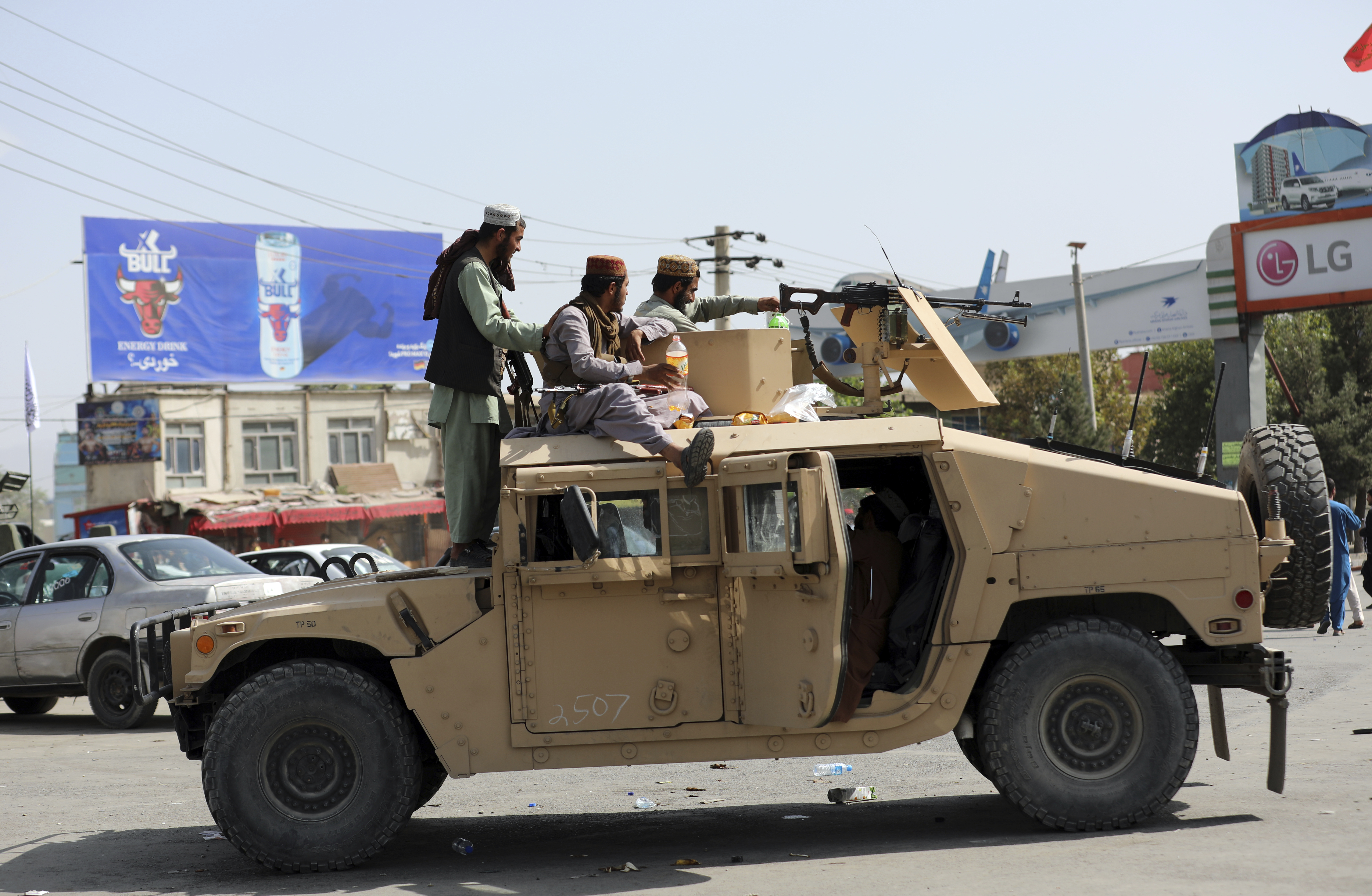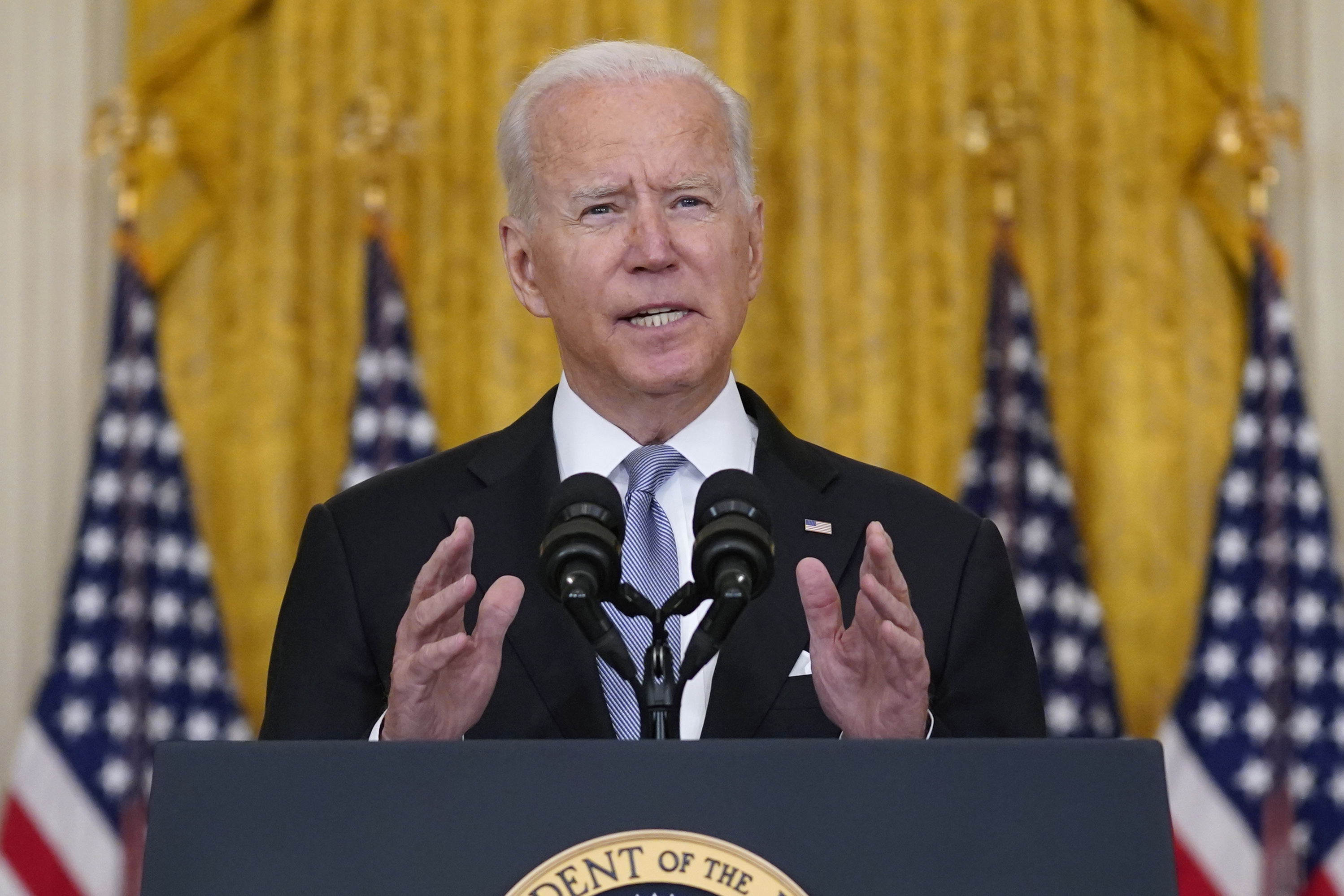It was a rare moment of cohesion for a party divided between an old guard that long pushed for U.S. military aggression and supporters of former President Donald Trump who prioritized "America First"
When President Joe Biden announced he would stick to his predecessor's plan to withdraw U.S. troops from Afghanistan, Republican reaction was mixed and largely muted. Foreign policy had become so contentious that the party's own leaders had no single position on the end of the nation's longest war.
But the fall of the Afghan government and the Taliban's swift return to power have, at least for now, reunited Republicans in criticism of Biden. Longtime opponents of a withdrawal argued Monday that the president should have seen the disaster coming. Even those who cheered his decision to pull out troops turned to slamming him for doing it badly.
"An embarrassing spectacle, a diplomatic humiliation and a national security catastrophe,” said Sen. Ted Cruz, R-Texas.
We're making it easier for you to find stories that matter with our new newsletter — The 4Front. Sign up here and get news that is important for you to your inbox.
It was a rare moment of cohesion for a party that has been divided between an old guard that long pushed for U.S. military aggression and supporters of former President Donald Trump who prioritized “America First.” As Republicans moved Monday to turn the chaos into a political opportunity, it was unclear how long they'd be able to paper over that split.
More Afghanistan Coverage
“If they’re smart and say, ’Look, I wanted us out of Afghanistan, but not this way,'" Glen Bolger, a veteran GOP pollster who’s worked on numerous congressional campaigns, said of Republicans potentially staying on the political offensive. “Not in a total surrender and not letting the Taliban just waltz in and take over everything, hurting women and taking the clock back to the 1400s.’”
The Taliban's entering Kabul doesn't change the fact that Republicans have essentially attempted a U-turn on foreign policy — the kind of about-face that likely muddles any case they can make for blaming Biden without drawing some political blowback themselves.
The party has moved sharply away from the hawkish days just after the Sept. 11 terrorist attacks, when President George W. Bush first led the invasion of Afghanistan and spent years pushing nation-building and aggressive military intervention abroad. The Trump administration agreed late in its term to withdraw U.S. forces from Afghanistan this past May, with the then-president saying last year, “Now it’s time for somebody else to do that work."
“You know it’s been 19 years and even they are tired of fighting,” Trump said, though he added, “If bad things happen, we’ll go back.”
That agreement — it also entailed the Afghan government releasing 5,000 prisoners, some of whom may have joined the latest Taliban offensive — was supported by many Republicans. That endorsement didn't waver, even when Biden delayed sending home the roughly 2,500 U.S. troops remaining in Afghanistan until Sept. 11, so their departure would mark the 20th anniversary of the terrorist attacks.
Cruz was among those who welcomed that decision. He said in April he was "glad” troops were coming home.
“U.S. efforts at nation building actually makes things worse, not better,” Rep. Matt Gaetz, R-Fla., a close ally of Trump, said on his podcast this week.
Biden returned to the White House from Camp David and tried to refocus the debate on whether the U.S. still belonged in Afghanistan, not how it exited.
“I'm now the fourth American president to preside over war in Afghanistan,” he said. “I will not pass this responsibility on to a fifth.”
Asked, meanwhile, if negotiating with the Taliban lent legitimacy to terrorists, Mike Pompeo, Trump's former secretary of state and a key architect of the Afghanistan peace agreements, insisted on “Fox News Sunday” that "we never trusted the Taliban.”
Still, some of Pompeo's fellow Republicans say Trump shares the blame for what is now unfolding.
Rep. Adam Kinzinger, R-Ill., who served in the Air Force in Afghanistan, faulted “Donald Trump’s terrible deal he negotiated” but also Biden’s "terrible execution of a deal he never should have followed through on."
“At this moment, people are super excited about, or super focused on, how can they blame the other side. How can they win this political back and forth,” Kinzinger said. “I think Donald Trump bears huge blame and Joe Biden will ultimately bear the ultimate blame.”
Sen. Lisa Murkowski, R-Alaska, told reporters in Anchorage that she was among those who didn’t anticipate U.S. troops would be or should be in Afghanistan forever. But, she said, “what we have seen play out, I think, is troubling at such a degree and such a level.”
Murkowski added: “I think there’s going to be a lot of review about how we came to be at this place at this moment.”
Rep. Liz Cheney, R-Wyo., whose father helped shape Bush's foreign policy as his vice president and who herself is one of Trump’s fiercest GOP critics, tweeted that the “calamity” in Afghanistan began “with the Trump administration negotiating with terrorists and pretending they were partners for peace."
Cheney added that it is "ending with American surrender as Biden abandons the country to our terrorist enemies.”
Other Republicans have been more eager to paint what's unfolded as a Biden problem. Senate Minority Leader Mitch McConnell, R-Ky., called the events in Afghanistan an “unmitigated disaster" and said that the Biden administration "looks to me like it couldn’t organize a two-car funeral.”
“Simply the fact that President Trump announced we were going to leave in May didn’t mean President Biden had to do that," McConnell said of withdrawing U.S. forces.
The National Republican Congressional Committee launched online attacks against Democrats looking at tough House reelection battles during next year's midterms for their past support of Biden's Afghanistan policy.
Others have gone further. Sen. Rick Scott, R-Fla., chairman of the National Republican Senatorial Committee, lumped the Afghanistan developments with what he called the president's failure to address rising inflation or secure the U.S.-Mexico border and wondered in a tweet, "Has time come to exercise the provisions of the 25th Amendment?" Those provisions could remove Biden from office.
“Democrats control the House, Senate & @WhiteHouse,” tweeted Scott, who was traveling Monday and unavailable for further comment. “What in the world is Joe Biden doing?”
But Kinzinger countered that he thinks “both parties failed the American people.”
“They were so eager to go out and just make make statements that get applause at a rally like ‘bring all the troops home,’ without the adequate reality that leaders have got to lead and explain to the American people why the troops are there and why they’re important,” Kinzinger said. "Instead, we just get focused on the next election. This is the result of that.”
Associated Press writers Padmananda Rama in Washington, Bruce Schreiner in Louisville, Kentucky, and Mark Thiessen in Anchorage, Alaska, contributed to this report.



